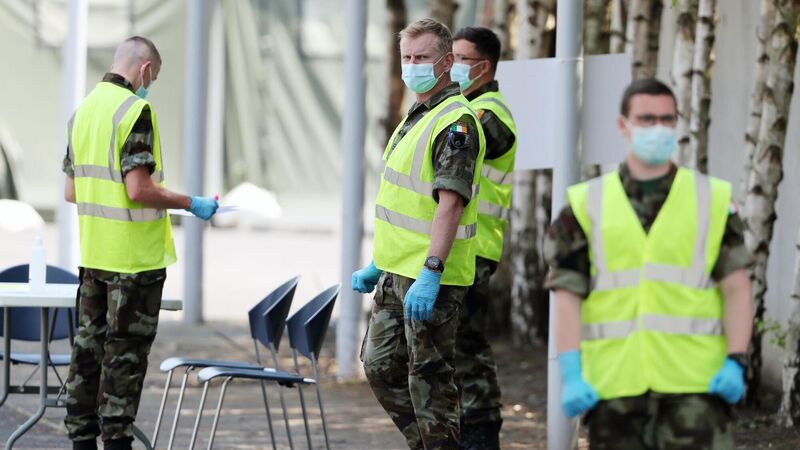Conor King: Manning up to our defence responsibility

Members of the Irish Defence forces at a Covid-19 testing facility at the Aviva Stadium in Dublin. Picture PA
Ireland has never had a greater need for a strong and resilient Defence Forces as part of our State’s security apparatus.
We are facing into an uncertain post-Brexit future, in the midst of a devastating pandemic, and about to assume our seat on the United Nations Security Council, but our Defence Forces, and consequently Ireland’s security has never been weaker.













